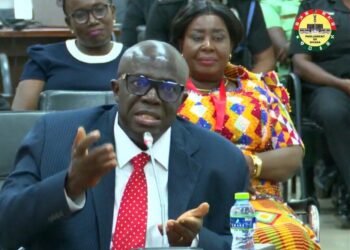Pensioners in Scotland will receive winter fuel payments that are equal to or greater than those offered by the UK government, First Minister John Swinney confirmed on Monday.
The announcement follows Chancellor Rachel Reeves’s recent reversal of a controversial policy on fuel payments, which originally sought to restrict the benefit.
Swinney assured the public: “I am very happy to confirm that no pensioner in Scotland will receive less than they would under the new UK scheme.”
He added that full details of the Scottish government’s updated plan would be revealed in due course, emphasizing Holyrood’s commitment to prioritizing the well-being of older Scots. “The Scottish government will always seek what is best for Scotland’s pensioners,” he stated.
The move comes after the Labour government’s partial climbdown on its decision to cut the once-universal winter fuel allowance. Under the revised scheme for England and Wales, pensioners with annual incomes below £35,000 will now receive £200 if they are under the age of 80, and £300 if they are 80 or older.
Last summer, the Scottish government had to put its plans for a new universal fuel benefit on hold due to Westminster’s policy changes. But even before Monday’s announcement, Holyrood had committed to paying at least £100 to every pensioner in Scotland for the 2025/26 winter season.
Pensioners in Scotland already on pension credit or other qualifying benefits were also set to receive £203 or £305, depending on their age, figures that closely align with the updated UK policy. However, Swinney’s announcement guarantees no Scottish pensioner will receive less than their counterparts in England or Wales.
Political Pressure Played a Role in Winter Fuel Payment U-Turn
Addressing the change in Westminster’s approach, Prime Minister Keir Starmer acknowledged the political pressure that led to the policy shift. He admitted that the government had “listened to voters” following a poor showing in recent local elections, which prompted a reassessment of unpopular cuts.

In Scotland, the implications go beyond matching payments. Mr Swinney revealed that the shift in UK policy would bring approximately £120 million in additional funding to Holyrood, allowing the devolved government more fiscal room to protect vulnerable citizens during winter.
In a strongly worded statement, the First Minister defended the importance of the winter fuel payment. “The winter fuel payment kept some of the most vulnerable in society warm in winter – it was always the right thing to do but it was also the smart thing to do,” Swinney said.
He added: “Smart because it kept people out of hospital, in their own home. It kept them warm and well. And then it was gone.” Swinney sharply criticized the decision to initially cut the benefit, calling it “an almost textbook definition of a false economy.”
“To be quite blunt about it, I don’t believe cutting this winter lifeline was ever going to save a penny because making millions of pensioners poorer makes them also colder and makes them also sicker and that in turn puts up the bill for our social services and our NHS.”
First Minister John Swinney
With both Westminster and Holyrood responding to mounting political and public pressure, pensioners across the UK now look set to receive crucial winter support — a sign that welfare, once again, is firmly back on the political agenda.
READ ALSO: Guinea Junta Sets New Election Body



















